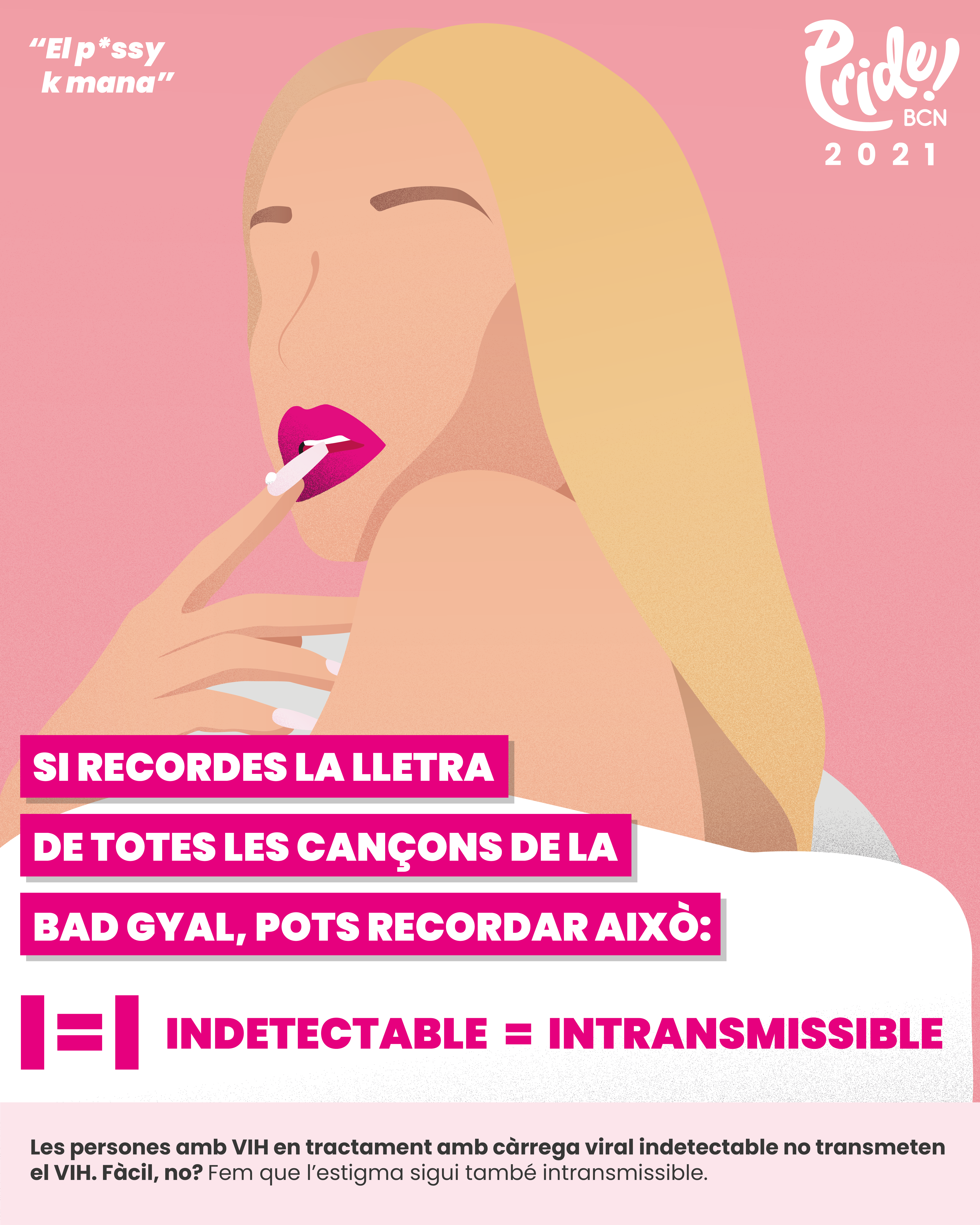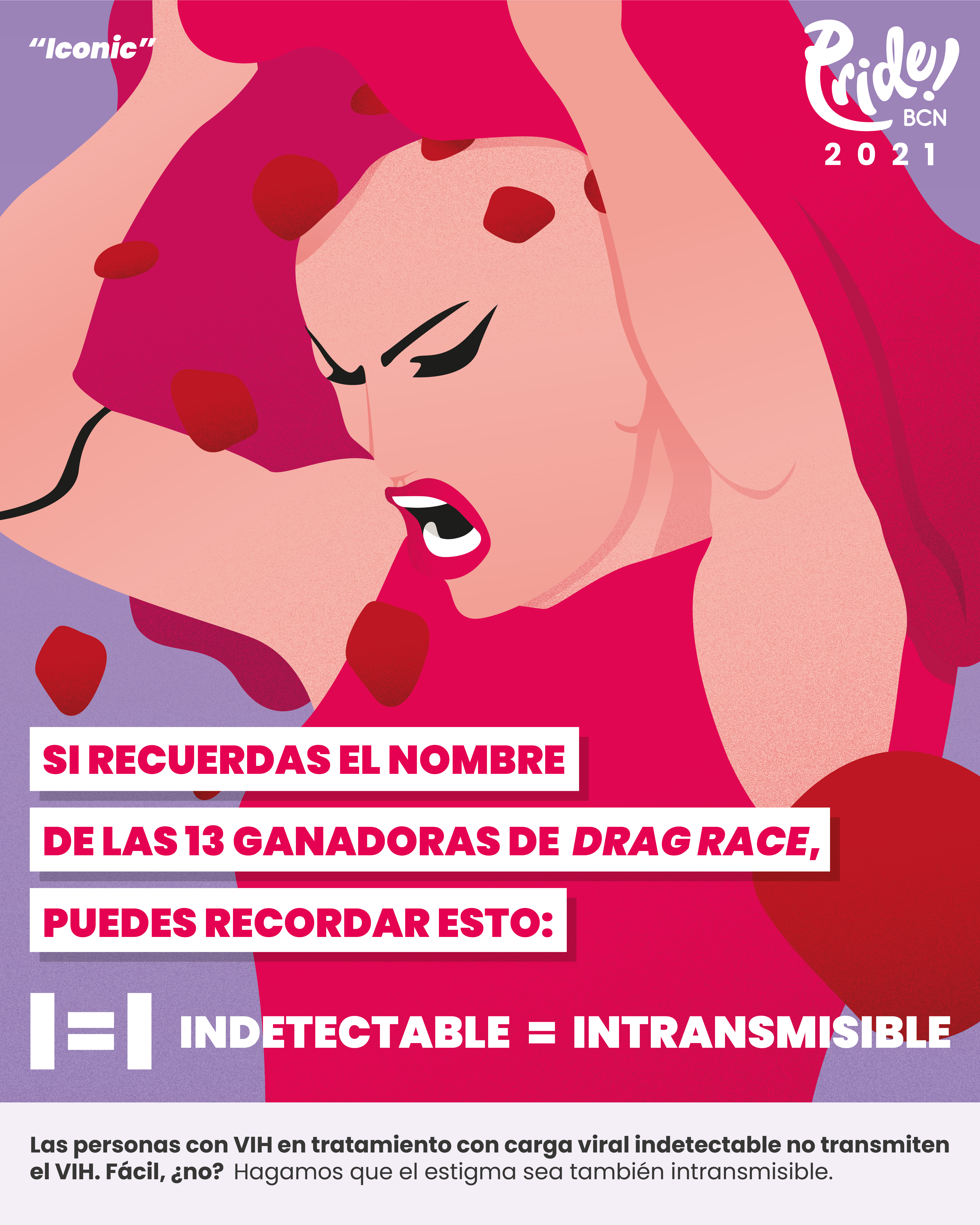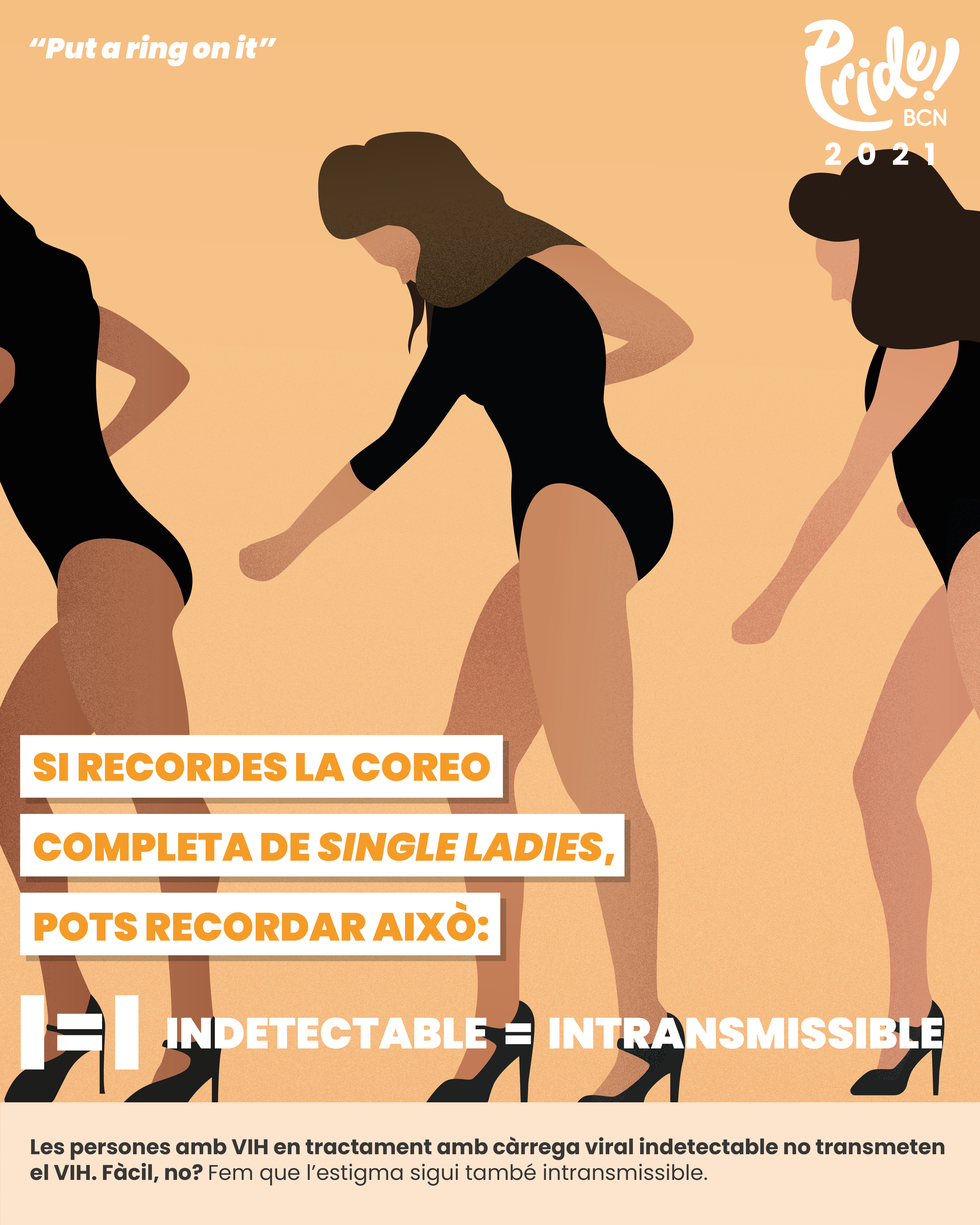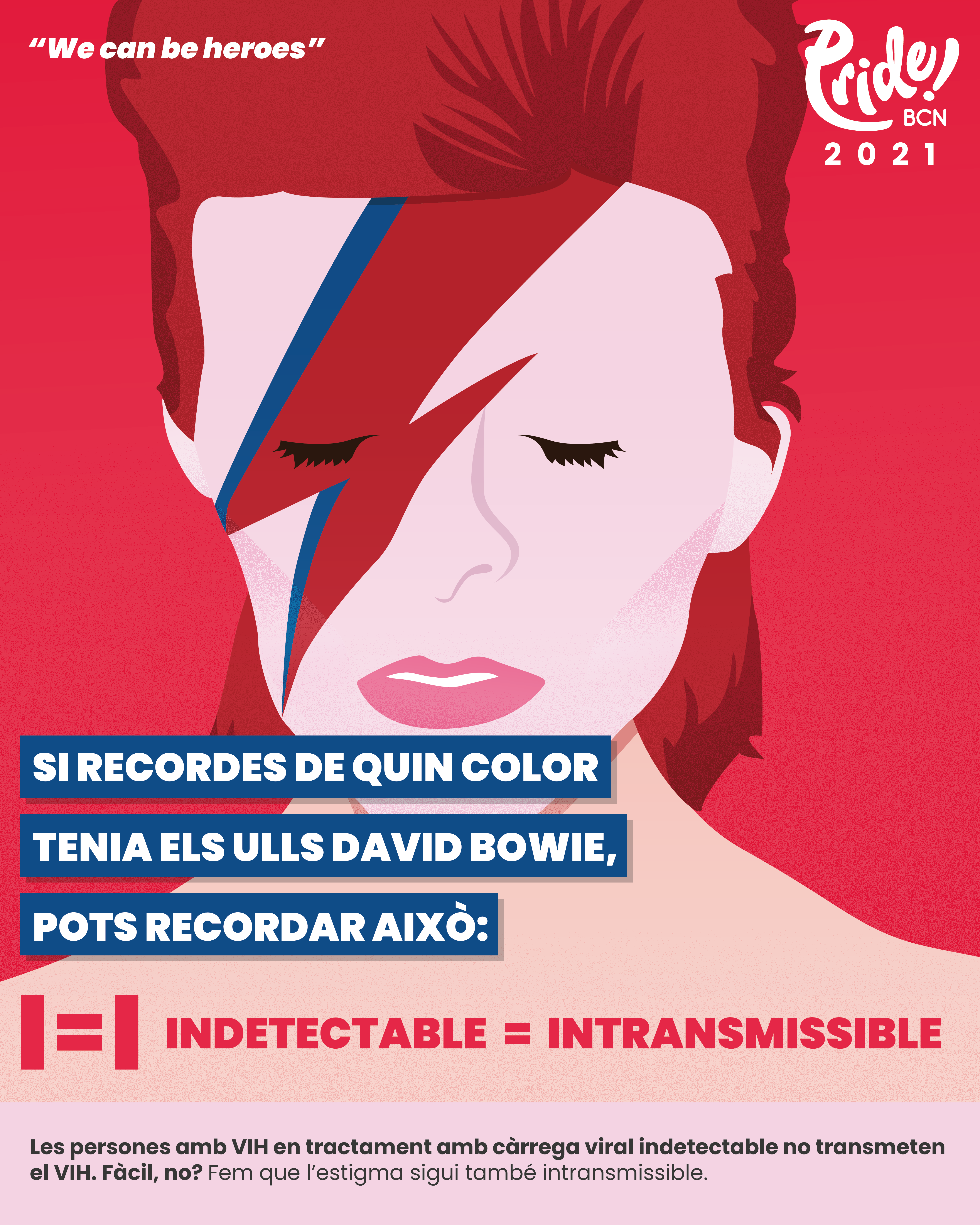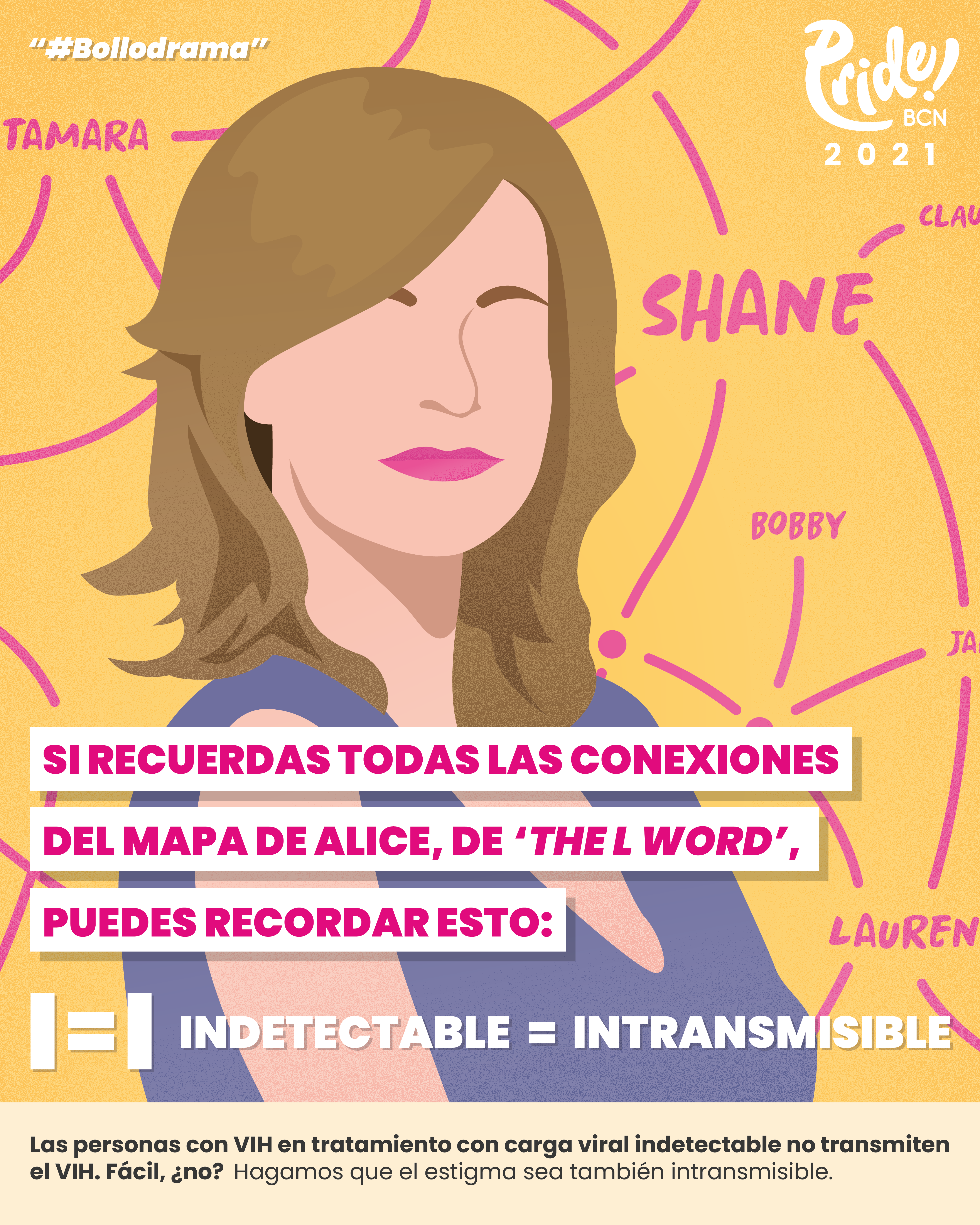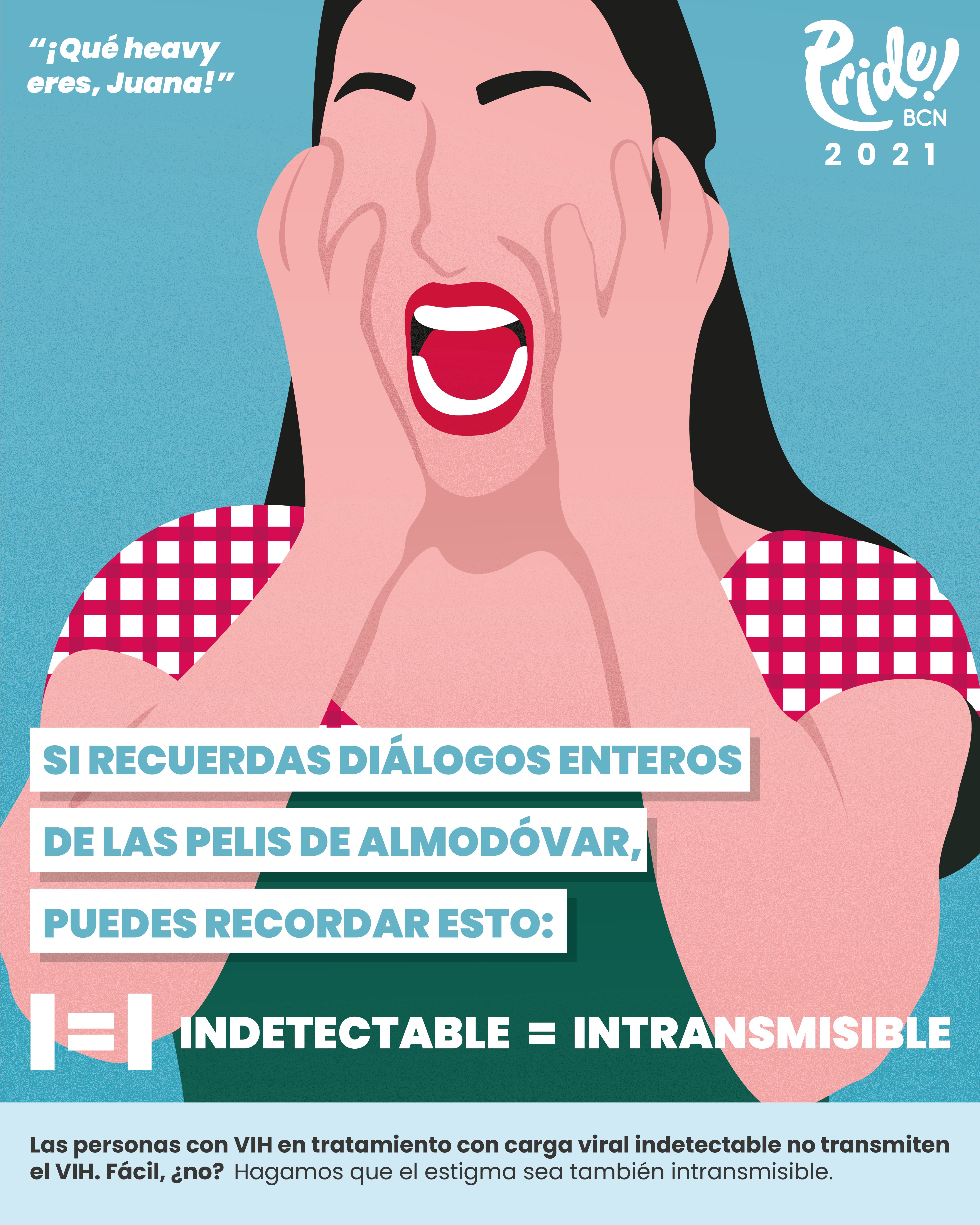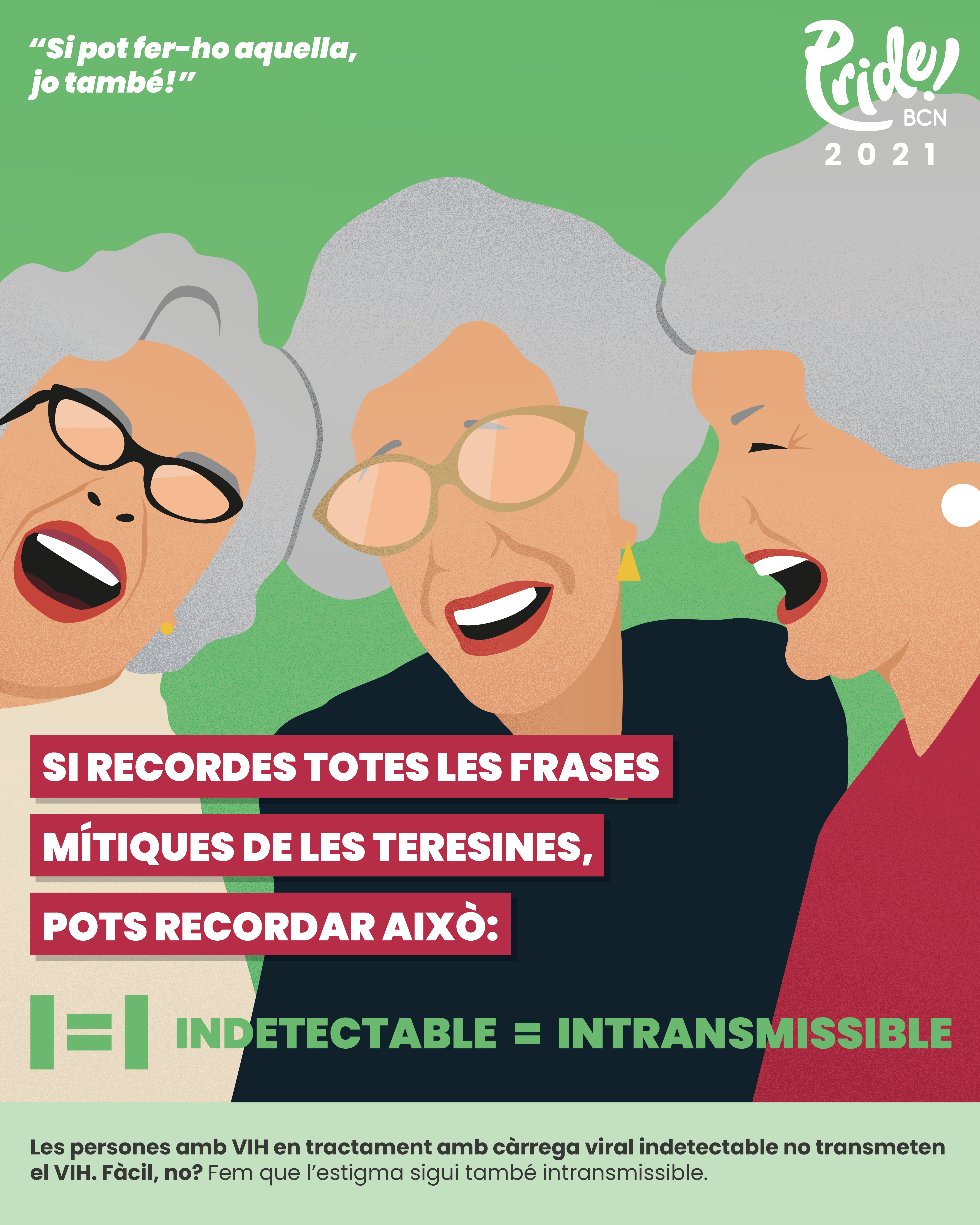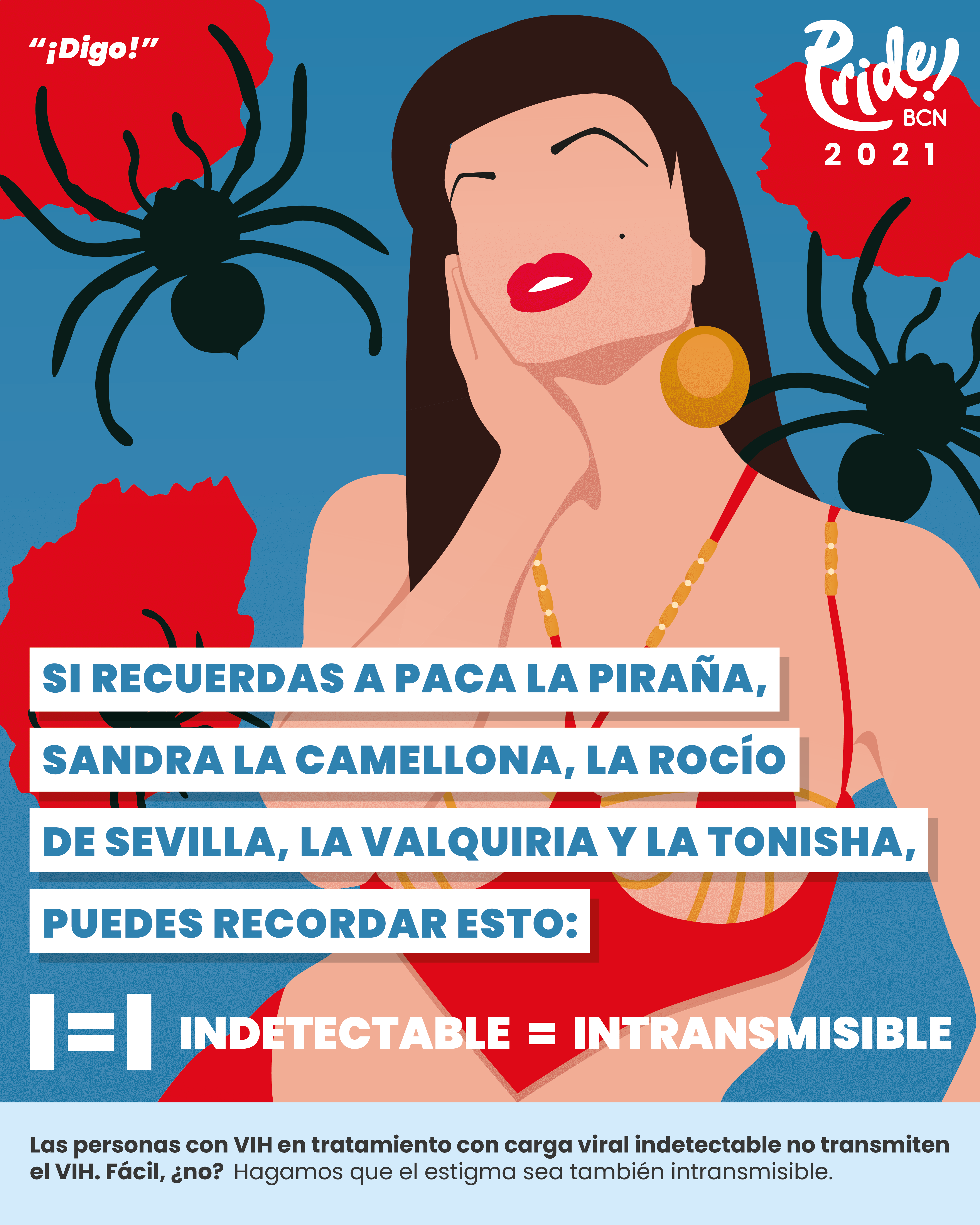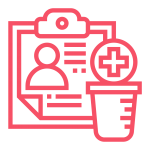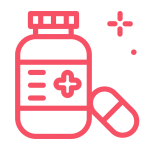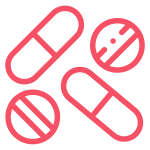This edition of Pride! Bcn is dedicated to fighting HIV stigma. A fight that will not end until people with HIV are treated equally in all areas of life: personal, social, institutional and related to work. One of the most powerful weapons we have against stigma and discrimination is INFORMATION. That’s why this year we have launched a campaign to get a simple but extremely important message across:
U=U
Undetectable = Untransmittable
People with HIV on treatment with an undetectable viral load do not transmit HIV. Easy, isn’t it?
Through a series of pop-inspired posters we wanted to capture the attention of the collective and society in general in order to make this reflection: 45% of LGBTIQ+ people do not know this information, and it is never too late to remind it.
Now that you know that Undetectable = Untransmittable, we encourage you to find out more about HIV. The more information you have, the better you will be able to choose your prevention strategies and the less prejudices there will be.
6 HIV PREVENTION STRATEGIES:
2. Medication for HIV
- If you have HIV: Taking the treatment according to the guidelines will help you control your infection. If treatment is effective, you may have so few copies of HIV that it cannot be detected by the testing instruments (in which case the person is said to have an undetectable viral load). In this case, it has not been proven that people can transmit HIV through their sexual practices. You can ask for treatment at special units in hospitals in your city or at specialised centres.
- If you do not have HIV: There are two strategies for avoiding possible HIV infection. They are based on taking antiretrovirals before (PrEP) or after exposure to the virus (PEP). PrEP requires medical monitoring and counselling for treatment management to ensure effectiveness. You can get it in special HIV units in your town/city hospitals, or in specialised centres such as Bcn CheckPoint. Post-exposure prophylaxis (PEP) is administered after medical assessment in hospital emergency units: it lasts 28 days and it is more effective the sooner it is started, always within 72 hours of exposure.
3. Condoms, lubricants and other barrier methods:
- Using a condom protects you against HIV and other STIs as long as it does not break or slip off. There are condoms for penis and vagina. There are also rubber dental dams for vagina/anus. Using lubricant during penetration can reduce the chance of injury. Sex between women also carries risks of HIV and STIs.
4. Treatment for other STIs:
- Many STIs such as gonorrhoea or chlamydia can be cleared from the body with medical treatment. To prevent you from getting infected from your partner or sexual partners with these STIs again once you have cleared the infection, you need to treat each other. Hepatitis A and B have a vaccine.
5. Pleasure management:
- In your own balance of practices that give you pleasure and the risk they may carry, there are strategies that can help you reduce that risk and increase your pleasure. Alcohol and drug use can influence your decisions and lead you to take more risks than you would have liked in the beginning. If you are not sure, don’t do it.
6. Your choices transform your personal environment:
- Acts of care towards oneself and others are a political act, as it claims our rights to live our sexuality fully and pleasurably and the use of resources to be able to do so.
If you have any doubts and you need support or advice, you can contact the following specialised associations. They will be happy to help you.





